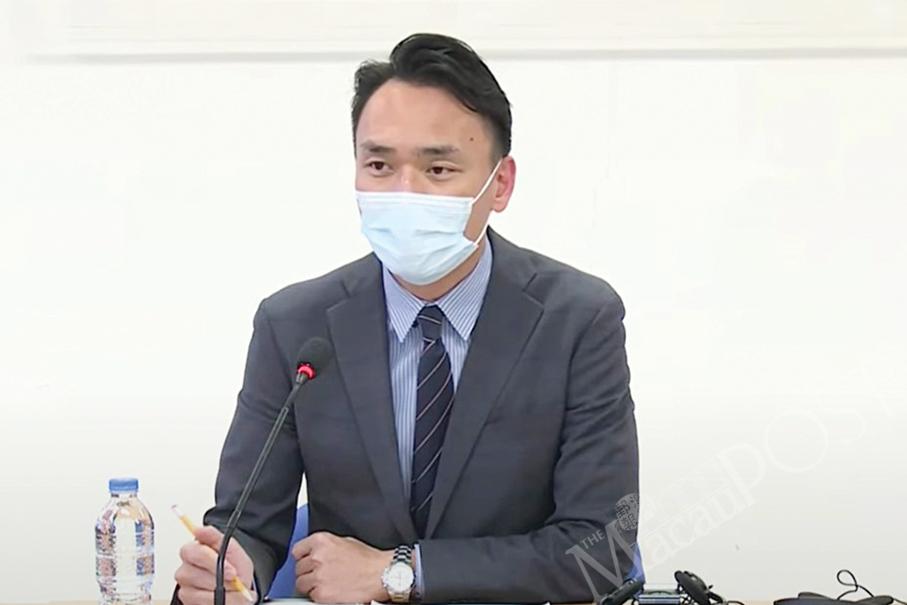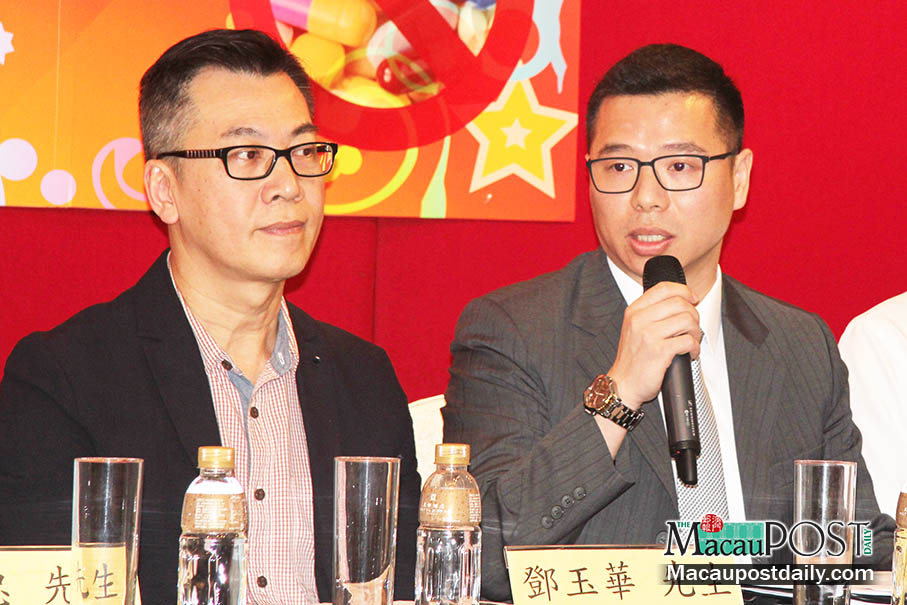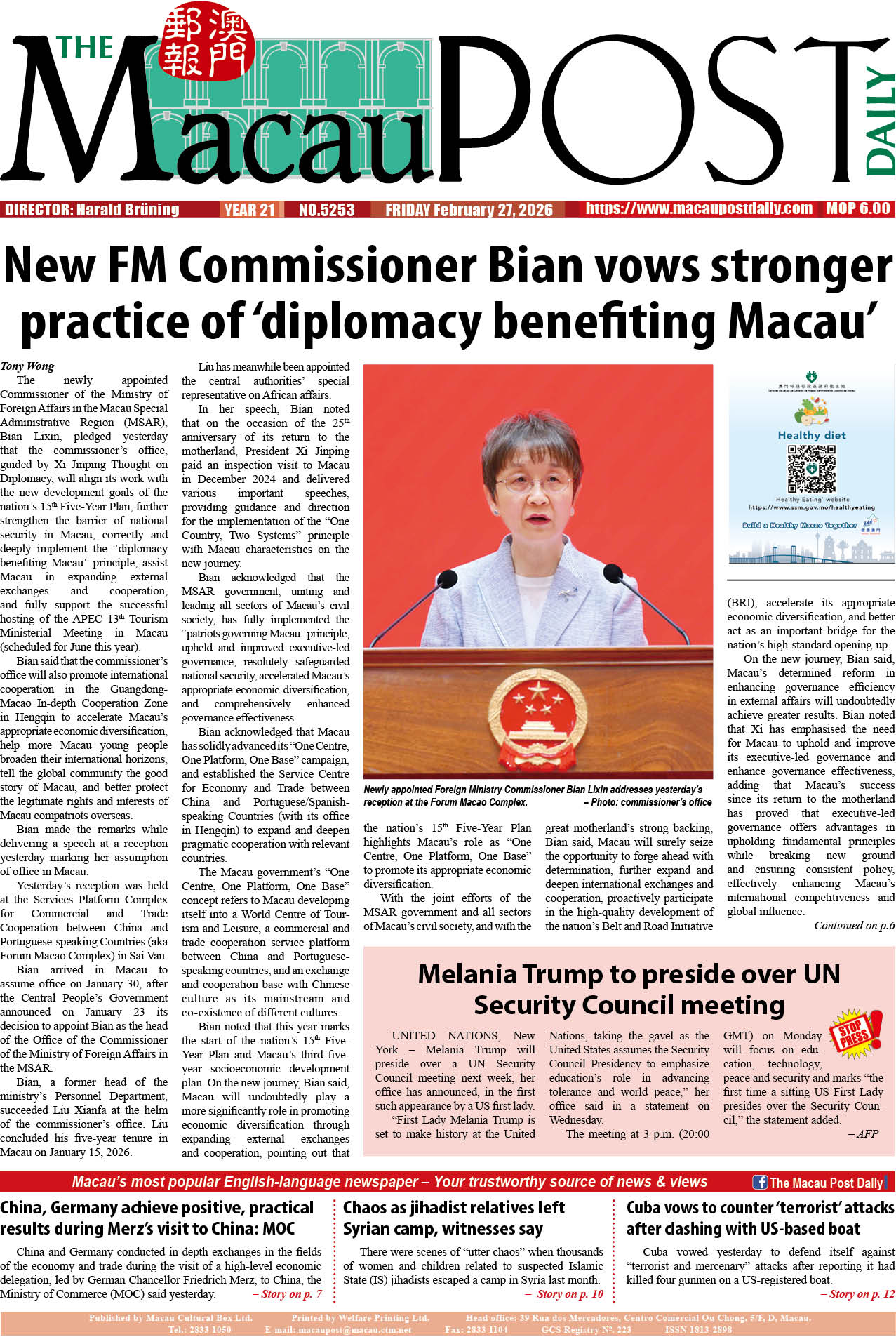Addressing Friday’s press conference about Macau’s novel coronavirus situation, Education and Youth Development Bureau (DSEDJ) Deputy Director Kong Chi Meng announced COVID-19 arrangements concerning the city’s new academic year that begins early next month.
Kong said that the special COVID-19 control and prevention measures for the upcoming new academic year aim to ensure the health and safety of students and teachers, as some of the local students and teachers have been visiting different areas in the mainland or have returned to their respective hometowns there during the ongoing summer holiday, considering that more and more areas in the mainland have been classified as medium- or high-risk COVID-19 areas by the National Health Commission (NHC).
According to Kong, non-tertiary (recurrent, special, pre-primary, primary and secondary) education students, teachers and other school staff must return to Macau at least 14 days before the start of classes. For cross-order students, teachers and other school staff, Kong said, they must return to their normal residence, namely Zhuhai or Zhongshan, at least 14 days before the start of school.
A few thousand students enrolled in local schools live in Zhuhai and Zhongshan in the neighbouring province of Guangdong.
Replying to media questions, Kong underlined that those living in Macau can also return to school as scheduled if they visited Zhuhai or Zhongshan within 14 days prior to the start of classes.
Students, teachers and other school staff returning from outside Guangdong after August 6 must complete their COVID-19 nucleic acid test (NAT) within five days before the start of school, Kong said, adding that they must also present their Macau Health Code indicating a negative NAT result.
According to Kong, students and teachers of higher education institutions will temporarily switch to online teaching in the new academic year.
Once in-class teaching is resumed, according to Kong, higher education students, teachers and other staff members will be subject to the same COVID-19 arrangements as their counterparts in the non-tertiary sector, which means that they must return to Macau, Zhuhai or Zhongshan at least 14 days prior to resuming classes or work in Macau.
Similarly, higher education students, teachers and other staff members returning from outside Guangdong after August 6 must complete their nucleic acid test within five days before the start of in-class lessons. They must also present their Macau Health Code indicating a negative NAT result when returning to campus to study or work.
In the 2020/21 academic year, Macau had 83,984 students enrolled in the city’s 78 non-tertiary education institutions, namely schools and kindergartens.
According to the latest official statistics, Macau had 36,107 students enrolled in the city’s 10 higher education institutions in the 2019/20 academic year.
COVID-19 inoculations start at blood donation centre
Meanwhile, the Health Bureau (SSM) announced in a statement yesterday that from today COVID-19 vaccinations are also available at its Blood Transfusion Centre in Nape.
However, the statement said, the inoculations are only provided for blood donors due to the centre’s “space restrictions”.
According to the statement, only Sinopharm inoculations are available initially when the centre’s new vaccination facility, which is located on the second floor of Hotline Centre in Nape, comes into service.
Before today, Macau’s COVID-19 vaccinations were carried out at 18 facilities, comprising two inoculation facilities at the public Conde de São Januário Hospital Centre, eight public health centres, two public health stations, the Macau Forum inoculation facility, the Mong Ha vaccination facility, as well as the private Kiang Wu Hospital, the University Hospital run by the private Macau University of Science and Technology (MUST) in Taipa, and two clinics run by the Macau Federation of Trade Unions (commonly known as Gung Luen) – one of the city’s biggest community associations.
Two types of COVID-19 vaccines are currently available in Macau, China’s Sinopharm inactivated vaccine and Germany’s BioNTech mRNA vaccine. Currently, Sinopharm jabs are administered to those aged 18 or over in Macau, while BioNTech shots are given to those aged 12 or over.
Only three facilities in Macau are used for BioNTech inoculations, namely the public hospital’s blood sample collection room, the Ocean Gardens Health Centre and the Ilha Verde Health Centre.
The government’s free COVID-19 vaccination drive covers local residents, non-resident workers and non-local students enrolled in Macau. However, all other non-locals who hold a permit to stay in Macau, such as the family members of non-resident workers employed in Macau, have to pay 250 patacas per jab – which means that they have to pay 500 patacas to be inoculated against COVID-19 considering that each person requires two jabs.
COVID-19 vaccinees in Macau can choose to make an appointment for jabs or to get their walk-in inoculations.
Yesterday’s SSM statement said that the inoculations at the Blood Transfusion Centre are “primarily” provided to those (blood donors) who do not need to pay for COVID-19 jabs, namely local residents, non-resident workers and non-local students enrolled in Macau.
According to the statement, the COVID-19 vaccinations are available from 9:30 a.m. to 6 p.m. from Monday to Friday, from 10 a.m. to 5:30 p.m. on Saturdays, and from 11 a.m. to 4:30 p.m. on Sundays. For more information, please call 2828 6699 during the opening hours, the statement said.

Education and Youth Development Bureau (DSEDJ) Deputy Director Kong Chi Meng addresses Friday’s press conference about the city’s novel coronavirus (COVID-19) situation. Photo: GCS








